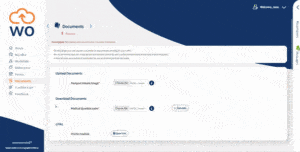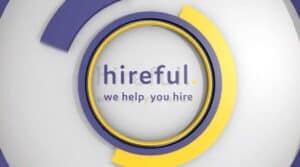The Good Work Plan 2020 imposes some major changes to the way that new hires are legally required to be managed.
This includes revisions to the way that contractual administration is handled during onboarding.
What information your HR team needs to provide and when you provide it will both change when the legislation becomes active on April 6th, 2020.
This information is referred to in the legislation as the ‘statement of written particulars of employment’.
You can find a full overview of the Good Work Plan changes and how it affects employee onboarding in our guide.
Here’s a look at exactly what ‘employment particulars’ covers and how the requirements are changing:
What are ‘written employment particulars’?
The employment particulars refer to the written information you provide to a new hire to inform them about the employment relationship they’re entering into.
These are the kind of details that are typically included in a contract and offer letter. The information that’s legally required is currently covered by the Employment Rights Act 1996. The employment particulars need to cover:
- How long a job is expected to last, or the end date of a fixed-term contract
- How much notice an employer and worker are required to give to terminate the agreement
- Details of eligibility for sick leave and pay
- The duration and conditions of any probationary period
- All remuneration, not just pay, including contributions in cash or kind for example vouchers and lunch
- Which specific days and times workers are required to work
The Good Work Plan 2002 legislation adds to these requirements. The new written statement must also include:
- The business’s name
- The employee’s name, job title or a description of work and start date
- If a previous job counts towards a period of continuous employment, the date the period started
- How much and how often an employee will get paid
- Hours of work and if employees will have to work Sundays, nights or overtime
- Holiday entitlement and if that includes public holidays
- Where an employee will be working and whether they might have to relocate
- If an employee works in different places, where these will be and what the employer’s address is
- Collective agreements
- Pensions
- Who to go to with a grievance and how to complain
These requirements are set out in The Employment Rights (Employment Particulars and Paid Annual Leave) (Amendment) Regulations 2018. The legislation covers England, Scotland and Wales – Northern Ireland has devolved employment law.
When do employment particulars have to be provided?
The current employment laws provide employers with a two month grace period after an employee starts to provide the information. From April 6th, 2020, this grace period is removed.
All of the employment particulars will need to be given to the person on or before their first day of work. It’s a requirement that many UK hiring teams are currently failing to meet.
What happens if you breach the proposed Good Work Plan laws?
The Good Work Plan legislation includes a change to the penalties that can be imposed for non-compliance, rising from the current £5,000 to £20,000.
How can you stay compliant?
It’s a combination of knowing what needs to be delivered and having the tools required to deliver it. Any kind of inefficiency during the onboarding phase will pose a risk when the two-month ‘wiggle’ room is removed.
Research suggests that many hiring teams are currently failing to provide all employment particulars before they start. The 2019 ‘Welcome Aboard’ survey found that 71% of new starters had not completed all onboarding paperwork before their first day.
For most hiring teams, onboarding is still handled with a traditional paper-based approach. Paper documents have to be sent, information needs to be manually transferred.
Digital employee onboarding
To streamline this process, more HR managers are moving over to a cloud-based approach. A system such as Webonboarding can provide all the required employment particulars via an online portal.
The use of digital signing creates a fully paperless process which reduces the time it takes to complete paperwork from weeks and days to minutes.




